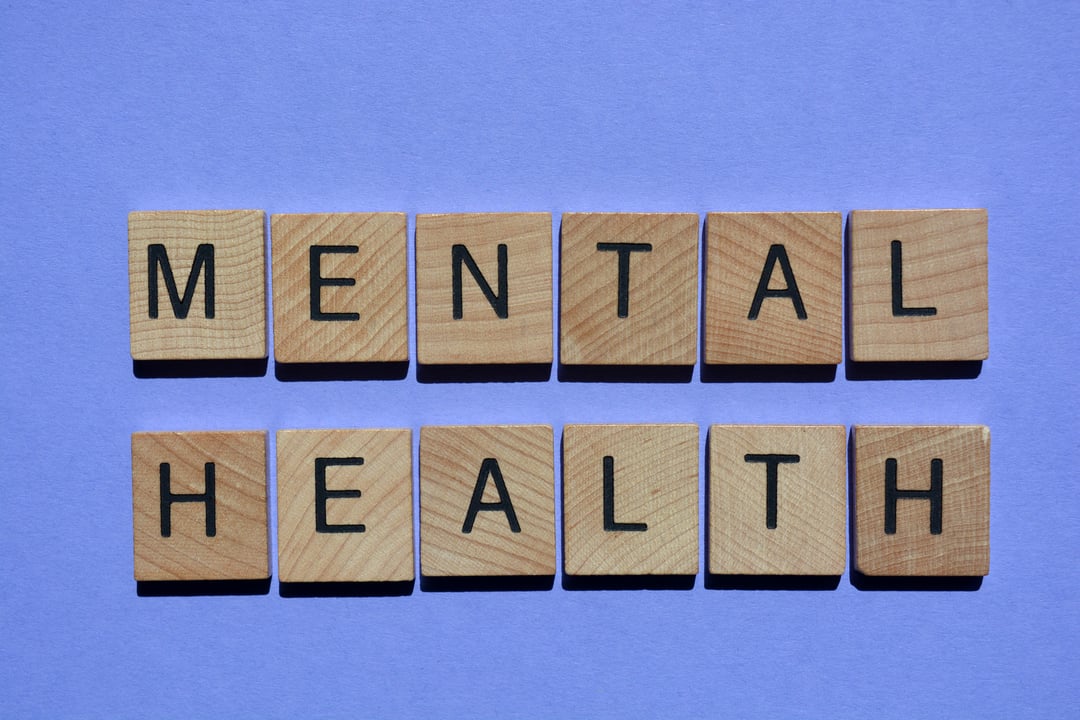Learning disabilities are often thought of as a school-based issue affecting primarily school-aged children. But in fact, learning disabilities can and will persist into adulthood.
These challenges will continue to impact various aspects of life, from education and employment to social interactions and daily functioning. Unlike some developmental disorders that may improve with age, unless addressed, learning disabilities endure throughout one’s lifetime.
In recent years, however, understanding of learning disabilities has evolved significantly. Learning disabilities do not have to be lifelong. Avoiding certain tasks or careers, relying on strategies or technology to cope, or simply being resigned to the struggles is no longer a reality.
Read on to consider how learning disabilities can be understood and overcome in adulthood through the power of neuroplasticity.
Understanding Learning Disabilities in Adults
Learning disabilities are neurological disorders that affect an individual's ability to acquire, process, or retain information. They significantly impact learning, performance, and daily life skills. Learning disabilities are not indicative of intelligence, but rather reflect differences in how the brain processes information.
Common types of learning disabilities include:
- Dyslexia (difficulty with reading);
- Dyscalculia (difficulty with math);
- Dysgraphia (difficulty with writing);
- ADHD (difficulty with attention);
- Memory Retention;
- and Auditory Processing Disorder (difficulty interpreting auditory information).
Other issues like poor attention or social struggles may not have distinct diagnoses, and though have the same underlying cause, and solution.
In childhood, learning disabilities typically manifest as academic struggles, difficulty following instructions, poor organizational skills, or challenges in social interactions. While some individuals receive early diagnosis, others may go undetected until adulthood.
The persistence of these same signs filter into adulthood. Struggles in understanding, organizing or interacting are often compounded through different stages of life. This leads to even further frustrations, setbacks in career progression, and strained personal relationships if not properly addressed.
Statistically, adults with learning difficulties have more challenging lives, experiencing greater risks of:
- unemployment or underemployment
- health issues
- mental health issues
- poor social connections
You can learn more about the impact of learning disabilities in our blog, The Cost of Learning Disabilities, and the Solution.
Signs of Learning Disabilities in Adults
Recognizing the signs of learning disabilities in adulthood is crucial for seeking appropriate support and intervention. The symptoms can vary widely depending on the type and severity of the learning disability, and are most easily recognized when reading, writing or math skills are impacted. When diagnosed, these might be labelled as a specific learning disability.
However other learning issues may appear with more subtlety, or are misunderstood as personality tendencies, or even ‘quirks’. Consider the following:
Attention Issues:
Difficulty sustaining attention or being easily distracted can be misinterpreted as laziness or lack of interest in the task at hand. It can also be perceived as disrespectful, when inattentiveness in social situations might be seen as rude or as disregarding others.
Comprehension:
Challenges in understanding complex instructions or concepts might be mistaken for low intelligence, or even an unwillingness to learn or consider other ideas or points of view. Rigidity or inflexibility is common for those with learning difficulties. It is not that they won’t, it is that they can’t.
Social Interaction Challenges:
Difficulty interpreting social cues or engaging in small talk might be seen as social awkwardness rather than a symptom of learning disabilities. Avoidance of social situations can be misinterpreted as shyness or introversion. On the flip side, assertive or boisterous behaviour may be seen as aggressive or arrogant. In both extremes, it is less a personality trait, but a learning difficulty in perceiving and interpreting the situation.
Memory Problems:
Forgetting instructions or important details may be perceived as carelessness or irresponsibility. Individuals may be blamed for missed deadlines, or having ‘commitment issues’.
Executive Function Challenges:
Issues with planning, time management, or task initiation might be misconstrued as procrastination. Difficulty adapting to changes in routine or unexpected events could be interpreted as resistance to change or inflexibility, but they are often due to a weakness in Executive Functioning.
In a workplace setting, these qualities are often interpreted as emotional intelligence or “soft skills”. In fact, these impact job performance far more than having the right experience or computer skills. By way of example, a national think tank published an “Employability Skills Profile” which listed the following ‘skills’:
- listen to understand and learn;
- understand and contribute to the organization’s goals;
- understand and work with the culture of the group;
- plan and make decisions with others and support the outcome;
- respect the thoughts and opinions of others in the group;
- and exercise “give and take” to achieve group results.
A step further, a survey of Ontario employers revealed ‘lack of social skills’ as the main reason for termination of employment. And yet – the listed items are not ‘skills’ at all; they are cognitive processes. They are not learned or taught, but are determined by one’s cognitive profile.
A Brain-Based View of Learning Disabilities
The brain lies beneath all of these challenges. Contrary to the sentiment that poor work ethic or even low intelligence causes under-achievement –it is in fact weak cognitive processes and poor cognitive connectivity.
Whether diagnosed or not, adults who experience difficulties despite their best efforts have cognitive glitches: under-functioning processes that cause gaps, delays and ultimately frustration in learning and performance.
You can read more about this, and how the cognitive functions of our brains support or hinder our learning , in our Beginners Guide to Cognitive Functions.
What is Neuroplasticity, and How Can it Help Individuals Overcome Learning Disabilities?
Neuroplasticity refers to the brain's ability to reorganize and adapt by forming new neural connections throughout life in response to learning or experience.
This breakthrough in brain science can be harnessed for good, and throughout our lifetime. Adults can benefit from neuroplastic approaches, strengthening and rewiring neural pathways that improve cognitive processes and mitigate or even end the effects of learning disabilities.
Solutions and Interventions for Learning Disabilities in Adults
Addressing learning disabilities in adulthood requires a holistic approach that combines understanding and scientific approaches.
Here are key solutions and interventions that can help individuals thrive:
Identification: Seeking a comprehensive evaluation from professionals can provide clarity on the specific nature and severity of learning issues, guiding personalized interventions. Completing a cognitive questionnaire is a good starting point to understand your cognitive profile of strengths and weaknesses. Another option is finding an organization who can do a cognitive assessment.
Cognitive Training Programs: Structured cognitive training programs based on the principles of neuroplasticity can target the cognitive weaknesses associated with learning disabilities. These programs include evidence-based exercises proven to improve attention, memory, processing speed, and executive functioning.
Behavioural and Psychological Support: Counselling or psychotherapy can be instrumental in enabling individuals to acquire tools for healthy and adaptive behaviours, healing past traumas and managing life’s stressors in general when paired with cognitive programming.
Read more about the relationship between cognitive function and therapeutic treatments in our blog, Can Cognitive Training Enhance the Therapeutic Process?
Lifestyle modifications: Adopting and maintaining healthy habits including regular exercise, good sleep hygiene and nutritious diet, can support participation in cognitive training and overall well-being in general. The link between the body, the brain and the mind continues to be explored and all signs point to the benefits of daily care of all three domains.
Case Studies and Success Stories of Adults Overcoming Learning Disabilities
John was diagnosed with Dyslexia as a child and coped in school only with his (and his mother’s) near exhaustive efforts to manage. John underwent cognitive training that strengthened his reading comprehension and writing skills. He now excels as a Senior Consultant at a non-profit. He was asked to speak at a graduation ceremony and shared:
“I never dreamed I would be standing here two years after I graduated telling you that in about a year’s time I will have graduated from university with an Honours BA in sociology. I also didn’t dream I would be telling you that the same professor who made life hard at university is now the head of the sociology department – and is the one who is now encouraging me to do my Master’s degree in sociology."
Lennie, never diagnosed but seen as a classic ‘underachiever’ throughout childhood and young adulthood, improved his executive functioning through programs targeted at prefrontal cortex processes Symbolic Thinking and Non-Verbal Thinking. He is now an award-winning industrial designer, leveraging his creativity and newfound goal setting – and achieving - abilities. He describes improving his cognitive capacities this way:
“I began to organize my thoughts more effectively, and to plan ahead: First a few weeks ahead, then a few months ahead. For the first time in my life I had real long term goals and was able to take steps towards achieving them … I am now compelled to organize my room, my life. I see what needs to be done and instead of procrastinating, I feel a compulsion to set things right -- in the moment.”
Shannon, a lawyer, was recommended cognitive programming by a therapist who recognized patterns in her behaviours and perception that weren’t serving her. While she had grown used to working far harder than her peers to manage her workload, Shannon found her professional and personal life soar after an intensive cognitive program.
A Brighter Future
Learning disabilities in adulthood present unique challenges and with continued research and advocacy, the landscape for individuals with learning disabilities has evolved, offering radically different opportunities for lifelong learning and success.
Recognizing symptoms as under-functioning cognitive processes in learning and performance, and seeking neuroplastic solutions built on principles of brain change, mean a very different reality for adults with learning disabilities. Increased academic and professional prospects, a renewed sense of self, and a higher quality of life are all within reach.
“I feel like I have more control in my life. The difference is so incredible. Other people wander around with all this stuff as normal, and they just take it for granted, and for me it’s so exciting now. And when I get into a new relationship, it’s going to be a different one. Very different. For the first time, I’ll be going in with my eyes wide open.”
- Anne, Adult Participant
From: The Woman Who Changed Her Brain
For more information about addressing learning challenges in adulthood, contact an organization near you or within your timezone: Arrowsmith Providers
If you are a professional or organization serving adults in academic, therapeutic or workplace settings, find out how cognitive programming can be integrated into your environment by contacting – Licensing Arrowsmith
Tags:
Learning Difficulties
August 27, 2024



